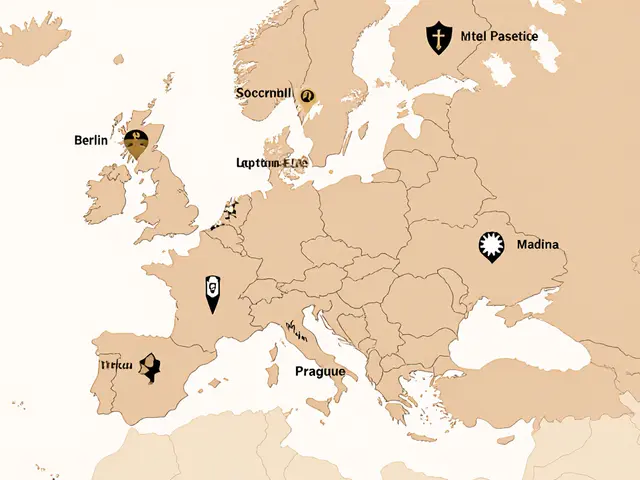Introduction to the Call Girl Industry in Europe
As a blogger exploring the various facets of the European economy, I have come across one industry that often goes unnoticed – the Call Girl Industry. In this article, I will delve into the economics of the Call Girl Industry in Europe, discussing the various factors that contribute to its growth and sustenance. From the demand and supply side of the business to the legal and ethical considerations, this article aims to provide a comprehensive understanding of this often-misunderstood industry.
The Demand Side: Understanding the Clientele
Before we explore the supply side of the Call Girl Industry, it is essential to understand the demand side – the clients. Most people seeking the services of call girls are men. The reasons for seeking such services can vary from loneliness and companionship to the desire for intimacy and sexual gratification. While it is difficult to generalize the demographic profile of clients, they come from various age groups, social backgrounds, and income levels. The demand for call girls is not limited to any specific country or region in Europe, making it a widespread phenomenon.
The Supply Side: Profiles of Call Girls
On the supply side, we have the call girls who cater to the demands of the clients. These women come from diverse backgrounds and may choose to enter the industry for various reasons. For some, it is a matter of financial necessity, while others may be lured by the prospect of a luxurious lifestyle and high earnings. Call girls may be independent or work through agencies, depending on their personal preferences and circumstances. The diversity in the profiles of call girls also contributes to the variety of services offered, catering to the specific needs and desires of clients.
The Role of Call Girl Agencies
Call girl agencies play a crucial role in the industry by serving as intermediaries between clients and call girls. These agencies maintain a database of call girls with their profiles and preferences, allowing clients to choose the one that best suits their requirements. The agencies are responsible for arranging meetings between clients and call girls, ensuring confidentiality, and providing a safe environment for both parties. In return, the agencies charge a commission from the call girls for their services.
Legal and Regulatory Framework
The legal and regulatory framework governing the Call Girl Industry in Europe varies from country to country. While some countries have legalized and regulated prostitution, others have strict laws against it. In countries where the industry is legal, call girls and agencies are required to register with the authorities and follow specific guidelines to ensure the safety and well-being of all parties involved. In countries where the industry is illegal, the Call Girl Industry often operates underground, making it difficult to gather accurate data and ensure the safety of call girls and their clients.
Economic Impact of the Call Girl Industry
The Call Girl Industry contributes significantly to the European economy. The industry generates revenue through direct earnings of call girls and agencies, as well as through indirect means such as hotels, restaurants, and transportation services that cater to clients. Additionally, the industry contributes to government revenues through taxes in countries where it is legal and regulated. The economic impact of the Call Girl Industry extends beyond its direct participants and has a ripple effect on various other sectors of the economy.
Social Stigma and Challenges Faced by Call Girls
Despite its economic contributions, the Call Girl Industry in Europe is often stigmatized and frowned upon by society. Call girls face numerous challenges, including social ostracism, discrimination, and the constant threat of violence. The lack of legal protection and social support in some countries further exacerbates these challenges, making it difficult for call girls to lead a normal life outside of their profession.
Efforts to Combat Human Trafficking and Exploitation
One of the major concerns associated with the Call Girl Industry in Europe is the issue of human trafficking and exploitation. Many women are coerced or forced into the industry against their will, often through deception or violence. To combat this issue, governments and non-governmental organizations have implemented various initiatives aimed at raising awareness, providing support to victims, and prosecuting those involved in human trafficking and exploitation. These efforts are crucial to ensuring the safety and well-being of call girls and eradicating the darker side of the industry.
Changing Perceptions and the Future of the Call Girl Industry
As society evolves and becomes more open to diverse lifestyles and choices, the perception of the Call Girl Industry in Europe is gradually changing. More people are recognizing the industry as a legitimate profession and are advocating for the rights and welfare of call girls. These changing perceptions, coupled with the economic benefits of the industry, indicate that the Call Girl Industry in Europe will continue to grow and adapt to the changing social and economic landscape of the continent.
Conclusion: A Complex and Multifaceted Industry
In conclusion, the Call Girl Industry in Europe is a complex and multifaceted industry that contributes significantly to the economy while facing numerous challenges and controversies. Understanding the various aspects of this industry, from the demand and supply side to the legal and ethical considerations, is crucial for formulating policies and initiatives aimed at ensuring the safety and well-being of all parties involved. As society continues to evolve, we must be open to reevaluating our perceptions of the Call Girl Industry and work towards creating a more inclusive and supportive environment for those involved in it.





